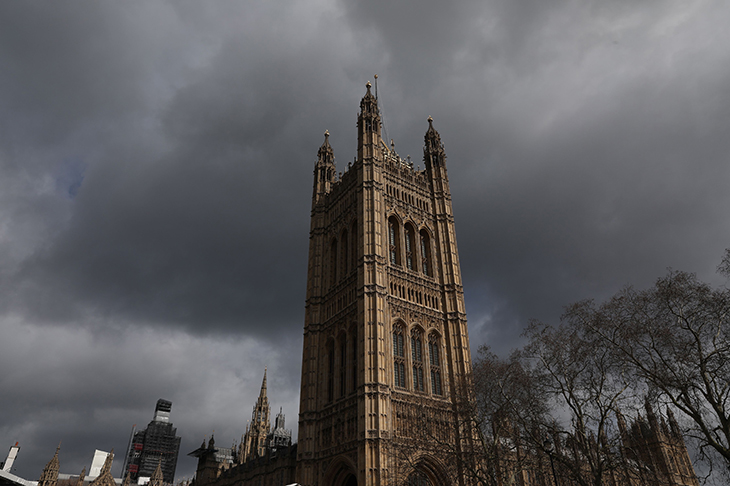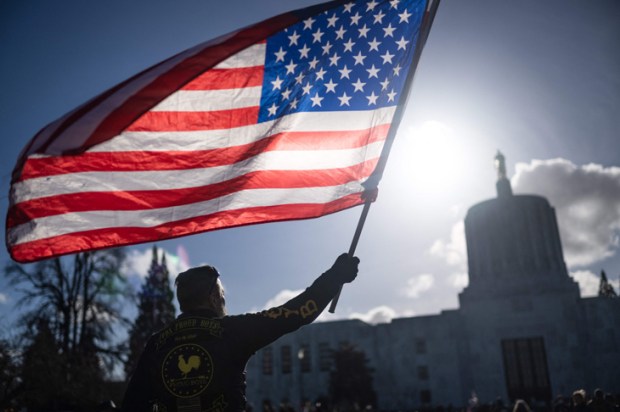Symbolism matters. It’s why the Muslim call to prayer rang out across New Zealand after the Christchurch massacre, and why NZ leader Jacinta Ardern traipsed around in a headscarf for days. She was saying symbolically to NZ’s Muslims, we feel your grief, we are all Muslims now.
Symbolism is also why the Australian government made a national apology to Aborigines, and why a Welcome to Country is held at many formal events now. It’s why role models matter. Those who focus on substance over style can overlook the emotional power and resonance of symbols, used for varying purposes since human history began.
This is why it is no small thing that a Victorian parliamentary committee is investigating scrapping or replacing the Lord’s Prayer at the opening of proceedings, after Premier Daniel Andrews said ‘a multi-faith moment’ may better reflect the state’s multicultural community and its diversity. It is not only in Victoria that this part of the Judaeo-Christian tradition is under attack, but also federally, where a Greens campaign against using the Lord’s Prayer in the Senate failed only last year.
The symbolism of giving this parliamentary primacy to the Lord’s Prayer is clear: it is an affirmation of the Judaeo-Christian foundation of modern Australian society, within the Western cultural tradition. Equally, axing it would be a rejection of that tradition.
Multiculturalism was first articulated as federal government policy by then-PM Malcolm Fraser in 1978, who outlined four guiding principles including: ‘every person should be able to maintain his or her culture without prejudice or disadvantage and should be encouraged to understand and embrace other cultures.’ The sales pitch was, let others have their culture just as we have ours.
There was always a self-evident contradiction here, in that an Anglican living within a Judaeo-Christian tradition could not maintain his culture if, for example, a Muslim was also maintaining his culture of living under sharia law. One or other culture can run the place, but not both, and certainly not multiple cultures.
Accordingly, it was always held that a multicultural Australia would unite around common values. As Fraser argued in 1981, in a quote reproduced approvingly in a 2008 speech by multiculturalism’s prime mover, Petro Georgiou:
Multiculturalism … is about cultural and ethnic differences set with a framework of shared fundamental values… It involves respect for the law and for our democratic institutions and processes. Insisting upon a core area of common values is no threat to multiculturalism but its guarantee, for it provides the minimal conditions on which the well being of all is secured.
What we are now seeing is the gulf between ‘equal cultures’ and ‘common values’, a great grey area of community traditions and identity fast becoming the battlefield of the culture wars. The parliamentary use of the Lord’s Prayer falls into this arena, as do Christmas carols, which the Victorian Premier tried – and failed – to ban from state primary schools. There’s Australia Day itself, the existence of Easter and Christmas traditions and holidays, the very British names of some states, the Christian symbols in the Commonwealth coat-of-arms – there’s a lot of work to be done for the activist running the yardstick of diversity over our traditions. This battle is also being fought globally; witness the increasingly common date replacement of BC and AD with BCE (Before Common Era) and CE.
We have reached the point where multiculturalism and diversity are being used as the tip of the spear to strip away the symbols and elements of the Judaeo-Christian tradition. This was not the deal we in Australia were sold. We have had the easy, colourful parts of the diversity and multiculturalism agenda, the kebab houses and the ceremonies and costumes; the bill has now come due.
Interestingly, it is not ethnic communities who are leading the charge to rub out the Anglo-Celtic, Judaeo-Christian traditions of the Australia to which they have migrated, but politicians, especially the Left and the Greens – those who most loathe Western culture and civilisation.
Of course, if they really wanted our parliamentary rituals to reflect diversity and multiculturalism, they would be against Welcome to Country ceremonies, which privilege one race above all others, and are neither diverse nor multicultural. But the Left loves and promotes such displays. For these people, multiculturalism is a weapon to be used against the enemy, the Judaeo-Christian West.
As US political figure Andrew Breitbart famously said, politics is downstream from culture – but culture may equally be said to be downstream from religion. Religious traditions matter, even to the non-religious, because the societies they create develop particular characteristics. Illegal immigration globally demonstrates the truth that societies based on the Judaeo-Christian tradition are the places people overwhelmingly want to live in.
However much critics such as Andrews may dislike this heritage, it is historical fact that those who built the parliament in which he works and laid the foundation for the community he leads were motivated by these very values. Our Australian parliaments are modelled on the mother of parliaments, London’s Westminster; and minster, in fact, means church. The Lord’s Prayer has rung out in Westminster Abbey and the Palace of Westminster for many centuries, and is of a piece with the historic development of the Westminster parliamentary tradition. Our capital cities are littered with the soaring spires of cathedrals and studded with churches, and the story of modern Australia cannot be divorced from the arrival of British peoples and their heritage. As any tourist in Europe soon discovers, European heritage is largely the art, architecture and culture of Christianity.
Stripping away such longstanding traditions as the Lord’s Prayer is exactly the sort of cultural vandalism and impoverishment that makes many Australians of European descent feel that their way of life and values are indeed under threat, that they do have their backs to the wall.
Full disclosure; as a Christian, I believe there is merit in our lawmakers pondering man’s flaws and smallness in the scheme of things as they consider significant decisions. Like the slave who reminded Caesar of his mortality, our legislators cannot be reminded too often of the great virtues that Christianity’s Golden Rule encapsulates: Do unto others as you would that they do unto you.
Compare that, and the Lord’s Prayer, to the Greens’ suggested text for a multi-faith prayer: ‘Senators, let us in silence pray or reflect upon our responsibilities to all people of Australia and to future generations.’ Can anyone seriously suggest that that could guide and inspire humanity for the next 2000 years?
Got something to add? Join the discussion and comment below.
Get 10 issues for just $10
Subscribe to The Spectator Australia today for the next 10 magazine issues, plus full online access, for just $10.
You might disagree with half of it, but you’ll enjoy reading all of it. Try your first month for free, then just $2 a week for the remainder of your first year.














Comments
Don't miss out
Join the conversation with other Spectator Australia readers. Subscribe to leave a comment.
SUBSCRIBEAlready a subscriber? Log in